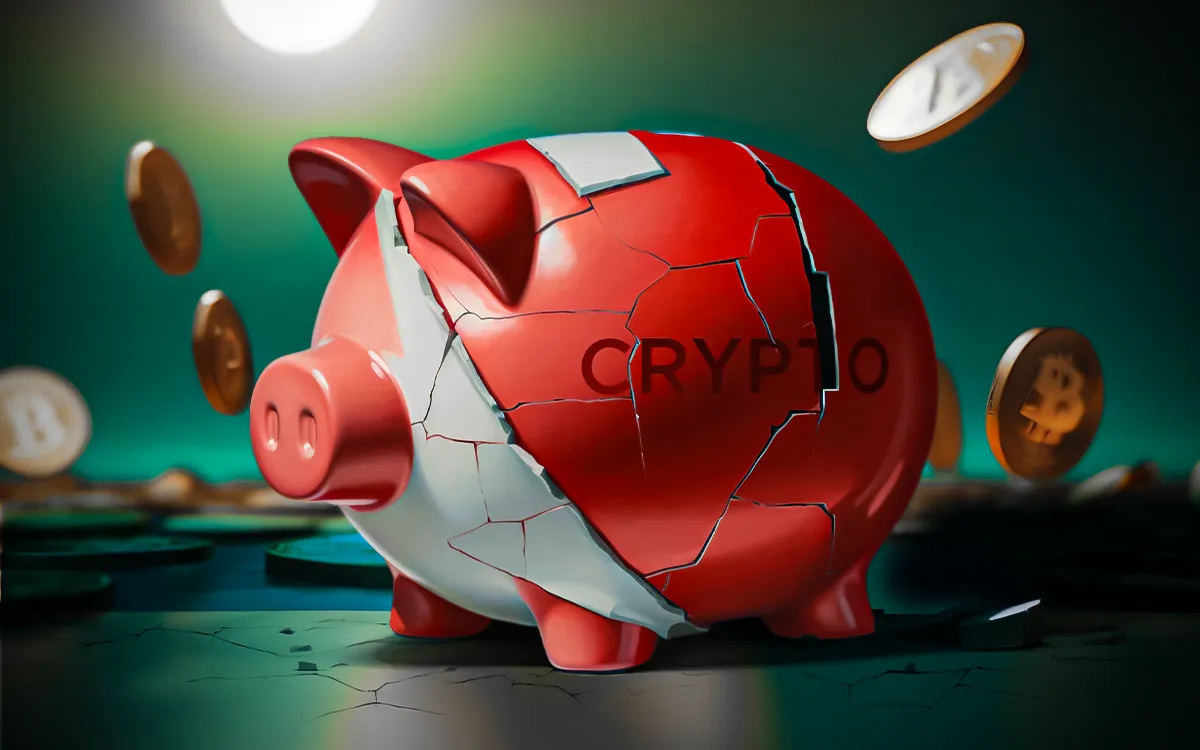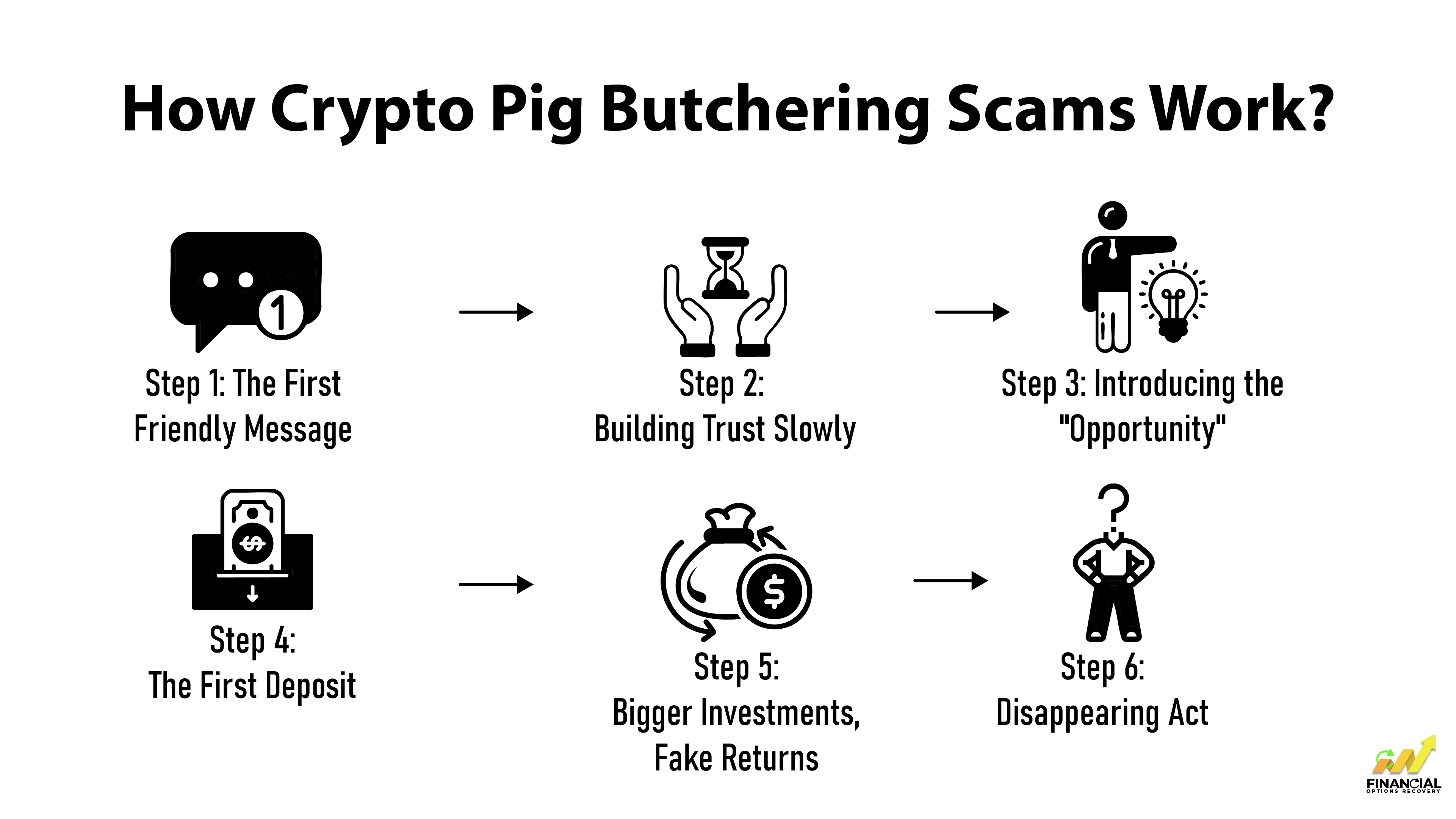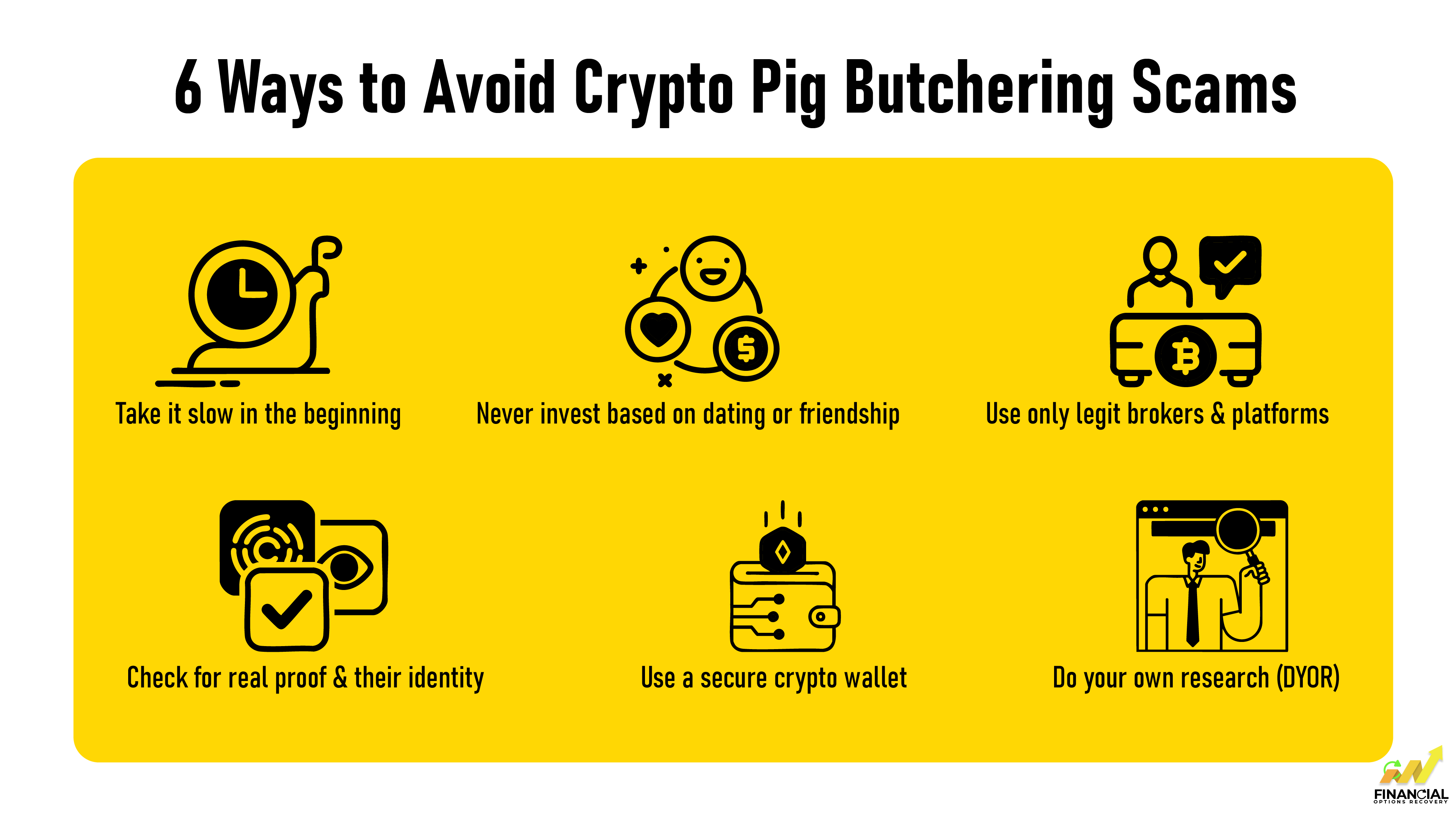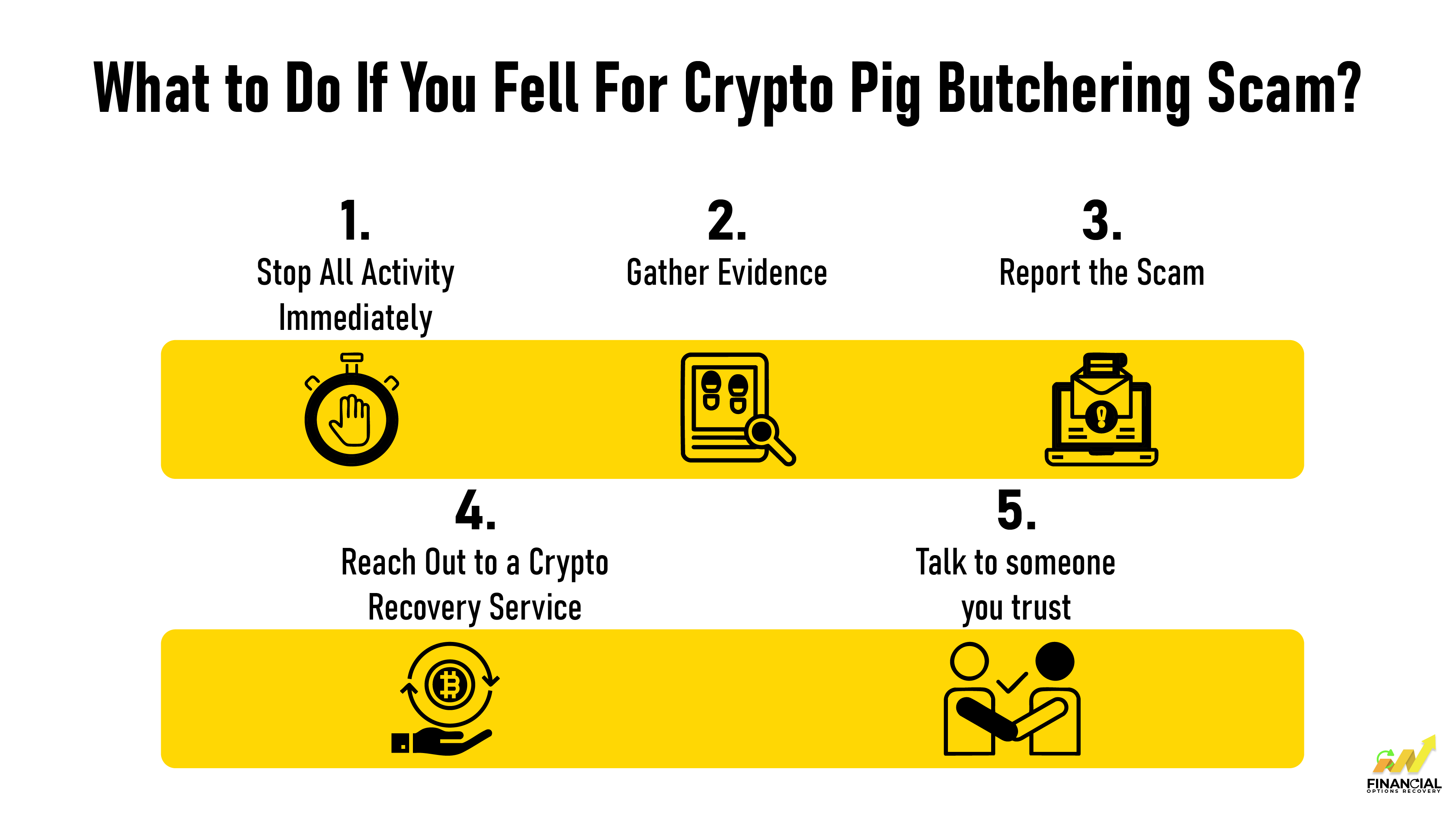
Table of Contents
Not all crypto scams start with shady links or “get rich quick” promises. Some begin with a friendly hello, a casual message, or a random chat on WhatsApp or Instagram. It may seem harmless, but it can be the start of a dangerous scam called pig butchering.
In this scam, criminals build fake relationships, pretend to fall in love, and slowly convince people to invest in fake crypto platforms. The result is often a complete loss of money and trust.
The damage is huge. Many victims end up broke and emotionally hurt. In 2024, pig butchering scams caused nearly 40% of the $9.9 billion lost to crypto scams, a sharp rise from the year before.
These scams operate worldwide, using emotional manipulation and crypto fraud to target anyone.
In this guide, we’ll cover how crypto pig butchering scams work, tactics scammers use, warning signs and how to protect yourself. We will also look out for ways to tackle if you’ve already been a victim and what process needs to be followed for a safe fund recovery.
A pig butchering scam may sound strange, but the meaning is deeply serious and, sadly, very real.
The term comes from the Chinese phrase “shā zhū pán” (杀猪盘), which translates to “pig-slaughter platform.” In this context, victims are the “pigs.” Scammers slowly “fatten” them up with fake affection, false promises, and the illusion of wealth before financially “slaughtering” them.
Basically, this is a long-con crypto fraud, carefully planned over days, weeks, or even months.
It often begins with a friendly or flirty message on WhatsApp, Instagram, or a dating site. The scammer may pose as a successful investor or lonely professional. This emotional setup is why it's commonly called a romance scam or dating scam.
Once a bond is built, the scammer introduces a “great opportunity,” usually through a fake online investment scheme or an impressive-looking crypto trading platform. They may claim to be a crypto expert or a fake crypto broker who can help you grow your money. But it’s all a lie. These platforms are fake, the profits are fake, and the relationship is fake.
In the end, victims often lose large amounts of money and, even worse, their sense of trust and emotional safety. Pig butchering scams leave people not only financially devastated but also heartbroken and ashamed.
Pig butchering scams aren’t random; they follow a precise, manipulative process. Here’s how it usually unfolds and the tactics scammers use at every step to trap victims emotionally and financially.

It starts with a “Hi” on WhatsApp, Telegram, Instagram, or even dating apps. They might say they messaged the “wrong number” or seem unusually polite and interested.
So scammers use fake profiles with attractive photos and luxury lifestyles to gain attention and create closeness.
They talk daily, share fake stories, and flirt. Sometimes they also pretend to be lonely, wealthy professionals, often overseas. You feel seen, heard, and understood. It feels real.
Thus, this is emotional grooming, designed to create deep trust before the scam begins.
They casually mention they invest in crypto. “It’s easy,” they say. “I can show you how.”
You’re not pressured, but it feels like a favor from someone who cares.They show fake screenshots of big returns or access to “exclusive” trading platforms that don’t exist.
They encourage you to try a small amount, maybe ₹5,000 or $100.
Soon, you will see “profits” in your account dashboard. It looks real, and withdrawals even work at first.The scammers use fake trading apps and dashboards with programmed profit simulations to build confidence.
When the platform shows huge growth in profits, you’re encouraged, and you end up investing more. But when you try to withdraw, you get blocked or told to pay “taxes,” “release fees,” or “security deposits.”These fake fees are a final squeeze. The more you pay, the more they demand.
Eventually, the scammers stop replying. Moreover, the app may crash or disappear, and you’re left confused and heartbroken, and your money is gone.So scammers cut off all contact once they sense doubt or resistance.
Note: These scams are smart, patient, and scripted. They blend emotional manipulation with technical deception, making them one of the most dangerous cryptocurrency scams today.
Pig butchering scams trick people by gaining their trust first, then stealing their money. But if you know what to look for, you can stop them before it’s too late.
|
Red Flag |
What It Means |
Why It’s a Red Flag |
How to Respond |
|
Fast emotional connection |
They become close quickly through flirty or caring messages. |
Scammers build trust fast, so you let your guard down. |
Take your time. Don’t share personal info early on. |
|
Too good to be true profits |
You see fake profit screenshots with huge daily returns. |
Real crypto profits are never guaranteed or that fast. |
Stay skeptical. Don’t trust “proof” that’s too perfect. |
|
Private or “exclusive” platforms |
They push you to invest in a fake trading app or an unknown crypto site. |
Scammers use fake platforms to control your money and data. |
Research every platform. If it’s not verified, avoid it. |
|
Small wins, then blocked |
You can withdraw small profits at first, then withdrawal gets blocked later. |
Small early gains build trust, then they trap you. |
Stop investing after small tests. Don’t fall for the setup. |
|
Surprise taxes or fees |
You're told to pay a “tax,” “release fee,” or “security deposit.” |
These are fake charges used to squeeze more money. |
Never pay to access your own funds. It’s a crypto tax scam. |
|
No video calls or proof |
They avoid live video chats or showing valid ID. |
Scammers hide their identity and script all communication. |
Ask for a live call. If they refuse, cut off contact. |
Staying alert to these red flags can protect your wallet and your heart. When in doubt, pause, research, and never invest under pressure.
You don’t have to be a crypto expert to protect yourself. Many victims are smart, kind people, and scammers simply take advantage of trust. These steps can help you keep both your money and emotions safe.

Following these steps will make it much harder for scammers to trick you and will help you make safer choices online.
First, take a breath.
If you’ve been caught in a pig butchering scam, please know this: it’s not your fault. These scams are highly calculated and designed to break down even the smartest, kindest people. Feeling hurt, ashamed, or angry is normal, but there are steps you can take right now to start moving forward.

Block the scammer on every platform: WhatsApp, Instagram, Telegram, dating apps, wherever they reach you. Don’t try to confront them or ask for your money back. Once they sense suspicion, they vanish anyway.
Messages, photos, account info, wallet addresses, email IDs, every detail matters. This can help you later when you file a crypto complaint or start your recovery process.
Even if it feels like nothing will happen, reporting helps. It builds a case, creates a paper trail, and may prevent others from being targeted.
You can report to:
You don’t have to figure it all out by yourself. Connect with a legitcrypto recovery service. They help victims trace stolen assets and understand what can be done next.
It’s easy to isolate after being scammed, but you don’t have to carry this alone. Talk to a friend, family member, or support group. What you’re feeling is valid, and speaking up helps you heal.
You can see how this plays out in our case study about a fake crypto giveaway scam on Instagram and its recovery story to help you better understand these scams.
If you’ve made it this far, let me say this clearly: you are not just a victim; you are a survivor. What happened to you was not weakness or foolishness. It was manipulation, emotional abuse, and financial fraud carried out by professional scammers who know exactly how to exploit trust.
But here’s something we haven’t said yet:
Healing from a scam is just as important as reporting it.
The emotional damage, the shame, the self-doubt, the heartbreak. It sticks longer than the financial loss. That’s why crypto scam victim support and counseling matter. You deserve help not just to trace your funds but to rebuild your peace of mind.
Every day, people are stepping forward, speaking up, and reclaiming control. You can too.
Take Your Next Step Toward Recovery
Need someone to talk to?
Be cautious when someone online suddenly wants to talk every day, especially if they start bringing up crypto or investing. Never send money or share wallet info with someone you haven’t met in real life. Use only secure crypto wallets and trusted platforms. And remember: real relationships don’t come with investment pitches.
Yes, often. Scammers sometimes pretend to be or “know” celebrities or use fake screenshots showing Elon Musk, Vitalik Buterin, or other crypto influencers to appear legitimate. If someone claims a celebrity is involved in their “exclusive” trading group, it’s a scam.
No, not at all. In fact, many victims are young professionals in their 20s or 30s, often tech-savvy and financially independent. The scammers adapt their approach based on who they’re targeting. Anyone with a phone and some savings can be a target.
Because they are meant to feel that way. Scammers take weeks, sometimes months, to build emotional trust. They remember your birthday, ask about your family, and message daily. It’s psychological manipulation, not just financial fraud.
Stop all communication with the scammer. Take screenshots of chats, transactions, and account info. Report it to your local cybercrime unit, your crypto exchange, and a recovery firm like us. The sooner you act, the better.